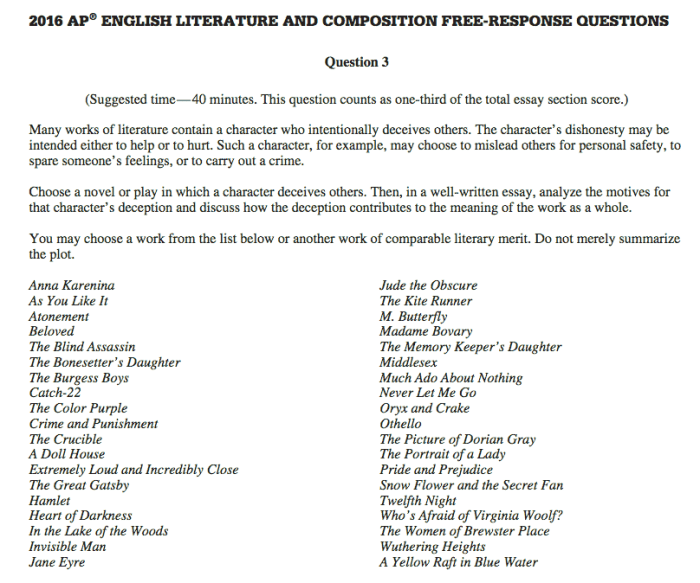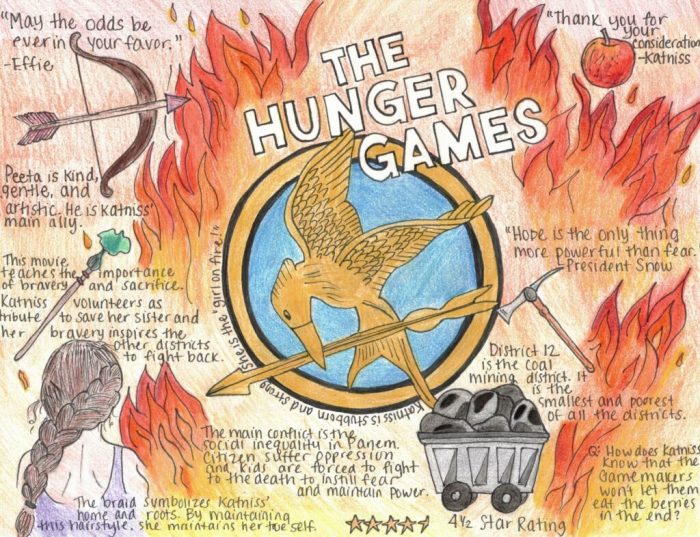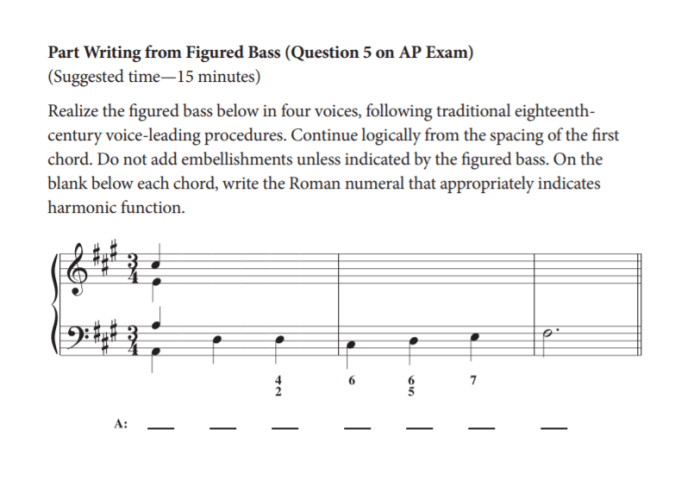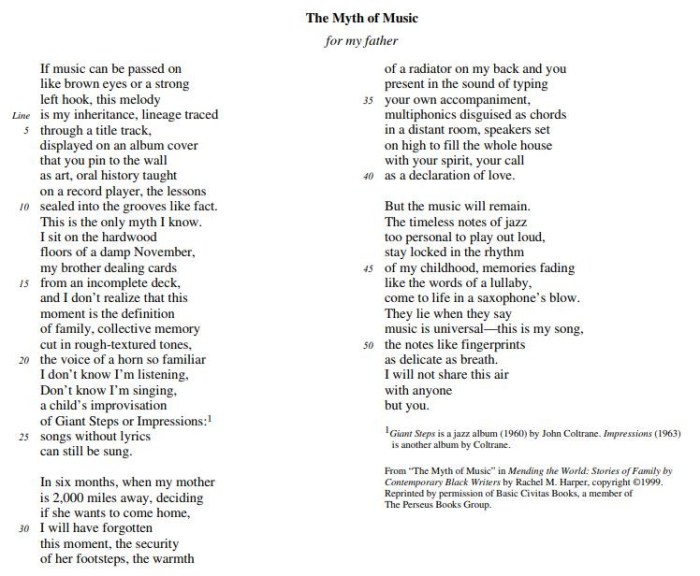The myth of music ap lit – Music and literature have always shared a symbiotic relationship, each enriching the other in myriad ways. In the realm of AP Literature, the myth of music holds sway, suggesting that music can transcend its own boundaries and exert a profound influence on the written word.
Throughout literary history, music has played a pivotal role in shaping narratives, evoking emotions, and enhancing character development. From the ancient Greek dramas to the modernist novels of the 20th century, music has been an indispensable tool for writers seeking to create immersive and resonant works.
The Historical Context of Music in Literature

Music has always held a profound significance in human culture, and its influence on literature is no exception. Throughout history, music has played a multifaceted role in shaping literary works, from providing atmospheric backdrop to driving narrative development.
In ancient times, music was closely intertwined with oral storytelling. The rhythmic cadence of language and the melodies of songs enhanced the memorability and impact of epic poems and myths. In the Middle Ages, music became an integral part of religious ceremonies and courtly entertainment, finding its way into literary works such as the Canterbury Talesby Geoffrey Chaucer.
Music in the Renaissance and Baroque Periods
During the Renaissance and Baroque periods, music experienced a surge in popularity and sophistication. Composers such as Giovanni Palestrina and Claudio Monteverdi created complex polyphonic works that inspired literary giants like William Shakespeare and John Milton. Music became a symbol of harmony and order, reflecting the intellectual and artistic aspirations of the time.
The Transformative Power of Music in Literature
Music holds a profound transformative power in literature, capable of evoking emotions, shaping atmospheres, and influencing character development and plot progression. Its ability to transcend language and appeal directly to the senses renders it a potent tool for literary expression.
Emotive and Atmospheric Effects of Music
Music has an innate capacity to evoke a wide range of emotions, from joy and tranquility to sadness and trepidation. It can create specific atmospheres, setting the mood and ambiance of a literary work. For instance, in Emily Brontë’s “Wuthering Heights,” the haunting melodies of the wind evoke a sense of desolation and isolation, mirroring the emotional turmoil of the characters.
Music’s Role in Character Development and Plot Progression
Music can play a pivotal role in character development, revealing their inner thoughts, emotions, and motivations. In Jane Austen’s “Pride and Prejudice,” the piano music played by Elizabeth Bennet showcases her intelligence, wit, and independence. Moreover, music can drive plot progression, creating tension, foreshadowing events, or providing a cathartic release.
In Shakespeare’s “Romeo and Juliet,” the musicians’ performance at the Capulet ball sets the stage for the fateful encounter between the star-crossed lovers.
Psychological and Philosophical Implications
The transformative power of music extends beyond its emotional and atmospheric effects. It raises profound psychological and philosophical questions about the nature of perception, the role of art in society, and the interconnectedness of human experience. Music can evoke memories, stir the subconscious, and facilitate a deeper understanding of the human condition.
The Symbiotic Relationship between Music and Literature

Music and literature, two distinct yet intertwined art forms, have always shared a profound connection. They influence and inspire each other, creating a symbiotic relationship that enriches both disciplines.The creative processes of music and literature exhibit both similarities and differences.
The myth of music AP Lit is a fascinating topic that has been debated for centuries. While some believe that music can have a profound impact on our emotions and well-being, others argue that it is merely a form of entertainment.
If you’re interested in learning more about this topic, I highly recommend checking out the hobbit ch 4 summary . This article provides a comprehensive overview of the myth of music AP Lit, exploring its history, key arguments, and implications.
After reading this article, you’ll have a better understanding of the role that music plays in our lives and the ways in which it can be used to shape our experiences.
Both require inspiration, imagination, and a deep understanding of their respective mediums. However, music relies primarily on sound and rhythm, while literature employs words and language. Despite these differences, the two art forms share a common goal: to express emotions, convey ideas, and tell stories.The
potential for cross-disciplinary collaboration between musicians and writers is immense. By combining their talents, they can create works that transcend the boundaries of their individual disciplines. For instance, a composer may set a literary text to music, creating a song cycle or an opera.
Conversely, a writer may draw inspiration from a musical piece, incorporating its rhythms and melodies into their prose or poetry. Such collaborations not only push the boundaries of both art forms but also offer audiences unique and unforgettable experiences.
The Challenges of Adapting Music to Literature

Adapting musical experiences into written form presents unique challenges. Music conveys emotions and ideas through a combination of rhythm, melody, harmony, and timbre, which can be difficult to capture in words. Writers must find ways to translate these musical elements into language that evokes similar sensations and impressions in the reader.
Techniques for Conveying Musical Nuances
Writers employ various techniques to convey the nuances and emotions of music in literature. Some use onomatopoeia and sensory language to mimic the sounds and rhythms of music. Others describe the physical and emotional responses that music elicits in characters or narrators.
By evoking the senses and emotions associated with music, writers can create a vivid and immersive experience for the reader.
Effectiveness of Different Approaches
The effectiveness of different approaches to adapting music for literary purposes varies depending on the writer’s skill and the context of the work. Some writers may choose to focus on capturing the emotional impact of music, while others may aim to convey its technical or structural aspects.
The choice of approach depends on the writer’s intentions and the desired effect on the reader.Ultimately, the challenge of adapting music to literature lies in finding a way to convey its emotional and aesthetic qualities through the medium of language.
By employing a variety of techniques and approaches, writers can create literary works that evoke the power and beauty of music, enriching the reader’s experience and expanding the boundaries of literary expression.
The Impact of Music on Literary Interpretation: The Myth Of Music Ap Lit

Music plays a pivotal role in shaping our perception and understanding of literary works. It has the power to evoke emotions, create ambiance, and influence our interpretation of characters and themes. Through its ability to transcend language and connect with our deepest feelings, music becomes an integral part of the literary experience, enriching our engagement with the written word.
Music can serve as a powerful tool for literary interpretation, influencing our responses and critical perspectives. It can highlight certain aspects of a work, emphasize its emotional core, or provide a new lens through which to view the characters and events.
For instance, the use of somber and melancholic music in a literary adaptation can heighten the sense of tragedy, while upbeat and lively melodies can create a more optimistic tone.
The Role of Music in Shaping Reader Responses, The myth of music ap lit
Music can profoundly impact our emotional responses to literary works. It can amplify our feelings of joy, sadness, fear, or suspense, enhancing our connection to the characters and their experiences. By creating a specific emotional atmosphere, music can guide our interpretation and influence our understanding of the work’s themes and messages.
Music as a Catalyst for Critical Perspectives
Music can also serve as a catalyst for critical analysis and interpretation. It can provide a fresh perspective on familiar works, challenging our assumptions and inviting us to consider new insights. By juxtaposing different musical genres or styles with literary texts, critics can explore the interconnections between literature and music, uncovering hidden meanings and shedding light on the work’s historical and cultural context.
Reinterpreting Literary Classics through Music
Music has been instrumental in reinterpreting and reimagining literary classics. Composers and musicians have adapted famous works into operas, symphonies, and songs, offering new interpretations that both honor the original text and provide a unique artistic expression. These musical adaptations can breathe new life into classic stories, allowing them to resonate with contemporary audiences and explore fresh perspectives.
Top FAQs
What is the myth of music in AP Literature?
The myth of music in AP Literature refers to the belief that music can transcend its own boundaries and exert a profound influence on the written word, shaping narratives, evoking emotions, and enhancing character development.
How does music influence the interpretation of literary works?
Music can influence the interpretation of literary works by creating atmosphere, evoking emotions, and shaping reader responses. It can also be used to reinterpret and reimagine literary classics.
What are the challenges of adapting music to literature?
The challenges of adapting music to literature include translating musical experiences into written form, conveying the nuances and emotions of music, and finding effective approaches to capturing the essence of music in literary language.